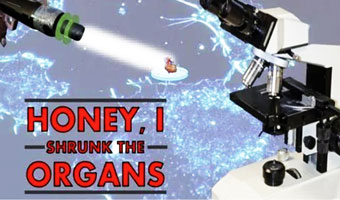
When the woman we can call “HA” applied for a permit to come to Hadassah Hospital from Gaza, she didn’t know that she would be making a significant contribution to the Hadassah Medical Organization’s understanding of the genetics of lipid metabolism.
HA had not yet been diagnosed with the extremely rare disease named Congenital Generalized Lipodystrophy (CGL).
Lipodystrophies are a group of unusual diseases characterized by partial or generalized loss or absence of fat. CGL’s characteristic clinical feature is near total lack of body fat and extreme muscularity, present at birth. These individuals--estimated worldwide at about one in ten million--develop extremely high levels of triglycerides, insulin resistance, and associated complications, such as diabetes mellitus, fatty liver disease, polycystic ovary syndrome, and hypertension. The genes involved in CGL have a role in the differentiation and function of fat cells, and the processing of fat in other tissues. Hadassah’s patient had a total cholesterol of 1,314, triglycerides of over 8,000, and an LDL of 1,260!
Once Hadassah cardiologist Dr. Ronen Durst, along with medical student Koby Gorin, made the diagnosis, they evaluated the patient’s family with the aim of determining the specific mutation. They found six affected family members and identified a novel frameshift mutation in the AGPAT2 gene.
AGPAT2, located on chromosome number nine, encodes an enzyme that is a key intermediate in the biosynthesis of fats in the body. The Hadassah team is working to understand the molecular mechanism of this gene, which will broaden understanding of fat metabolism in this disease and in the general population.
Currently, the most effective treatment for CGL is recombinant leptin, which can lead to a reduction in triglyceride levels and insulin resistance. Perhaps, the cardiology researchers note, their work will eventually lead to a genetic therapy for CGL and other avenues for treatment of abnormalities in fat metabolism.
Learn more about the Hadassah Medical Organization.









